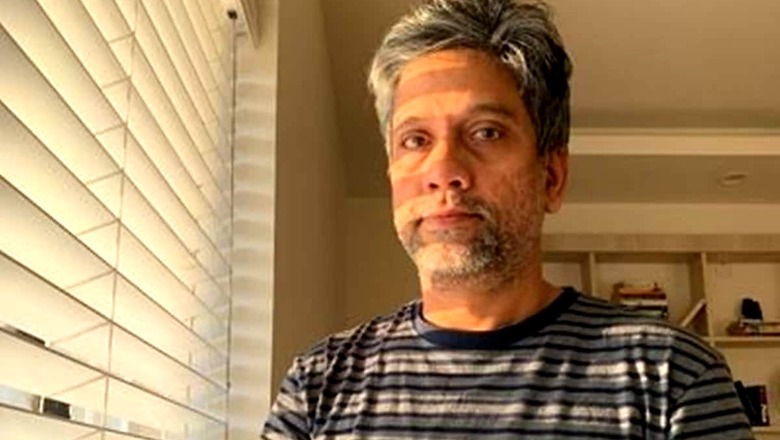
views
The recent raids on Delhi University professor Hany Babu’s house and subsequent press note by NIA stating his connection to Manipur-based insurgent group Kangleipak Communist Party –Military Council (KCP – MC), a banned outfit, has placed emphasis on the scope of Elgar Parishad investigation once again.
In fact, the actions by Maharashtra Police in this case fetched a variety of reactions and perceptions earlier as well. The opinions originated due to visible credulousness not only of the common man but of many luminaries from the intellectual and political fields further added to this spectrum.
Pragmatically, dissent is the soul of democracy and truth must be the soul of dissent. Democracy without dissent cannot be a healthy one and dissent without truth in it is nothing but subduing the reality. Furthermore, the zohnerism in recent times can also be exampled by the narrative followed by Elgar Parishad arrests and subsequent bail hearings. Many of the true facts from this case were used to lead legally ignorant populace with no understanding of the contemporary warfare to a false conclusion.
One set of people in India is busy projecting anyone and everyone as ‘urban naxals’ without any logical reasoning or evidence, and another set is busy labeling the Elgar accused as ‘dissenters’ or ‘human rights activists‘ with disdain to the evidence produced by police and NIA, and upheld by the judiciary of their links with proscribed terrorist organisations. The unfortunate outcomes of narratives by both these groups are unnecessary branding of some genuine dissenters as ‘urban naxals’ and equally unnecessary branding of the anti-democracy left wing extremists as civil rights activists or dissenters.
Consequently, the democratic dissension and society at large will have to pay a heavy price due to both these narratives. This also dilutes the threat perception of common human beings making them gullible in front of the false propaganda of Maoist front organisations. Enough has already been said on record about the widespread propaganda mechanism of the Maoist fronts during the UPA government.
Let’s get to the core of the case. On Jan 8, 2018, Tushar Damgude, a resident of Pune, lodged an FIR mentioning that the performances at Elgar Parishad on December 31, 2017 were provocative in nature and had an effect of creating communal disharmony. The FIR was launched against six members of Kabir Kala Manch, which was irrefutably declared as front organisation of CPI (Maoist) by UPA government in February 2014. Investigation progressed and based on material gathered during investigation, concerned agencies conducted searches on April 17 and Jun 6, 2018. Documents and material recovered from these searches were sent to Forensic Science Laboratory (FSL) and cloned copies were received by Investigating Agency. On the analysis of these cloned copies of material from the first raid, sections of UAPA were applied on May 17, 2018.
Based upon the seized and incriminating material, it was revealed that a few more people were part of the Criminal conspiracy and their role was vital, not just peripheral. Therefore, searches were conducted at the residences of the remaining accused and they were arrested on August 28, 2018.
Let’s decipher further. Is this a case of political dissent? No. Is this a case of just keeping some Maoist literature at home? A big no again. Are all the arrested people accused of being present at Elgar Parishad? Not at all. They are accused of being a part of a criminal conspiracy by a proscribed terrorist organisation CPI (Maoist). According to the affidavit filed by investigating agency in the beginning, the scope of this investigation is not restricted to finding out the object and effect of the programme of Elgar Parishad organised on December 31, 2017 or to carry out the investigation into the violence that followed in Koregaon-Bhima; but, the investigation was expanded to unearth a much larger conspiracy of seizing political power through armed revolution by mobilising masses by CPI (Maoist), a proscribed terrorist organisation.
People taking a stand for the accused of Elgar Parishad are supporting them for a variety of reasons. Ignorance about the legal details of the case, lack of awareness on Maoism as a security threat, political affiliations, blind following of party leaders and their stand, mob mentality, caste-based identities, ideological affiliations, thoughtless following of the Intellectual leaders, Zohnerism, membership of the Maoist propaganda groups, inclination to Maoist ideology are just a few to enlist. In this context, labeling everyone supporting the accused as ‘urban naxals’ without even knowing the reason for their support bears adverse consequences and dilutes the perception of this threat due to generalisation. Sometimes, the word ‘urban naxal’ appears to be contaminated by political biases and arbitrary definitions. Let’s not be judgmental about people’s love and commitment to the nation as citizens and, by the same token, let’s not be naïve enough to call everyone a dissenter. Healthy communication and awareness is needed on this subject, not judgmental biases. In fact, retired police officers, academic researchers and unprejudiced media can play a vital role in navigating the narrative on this subject into a balanced and factually correct direction.
In November 2013, Ministry of Home Affairs with SushilKumar Shinde at its helm, filed an affidavit in the Supreme Court. It highlighted the disinformation campaigns by Maoist propaganda mechanism in urban areas to malign the government institutions taking action against them. The threat is real. Responsible cognizance of facts and balanced analysis of Maoism and its urban dimension is the need of the hour. Ultimately, the Security Forces and innocent tribal and Dalits conveniently labeled as ‘police informers’ by the Maoists will pay the price if this perception on Maoism is manipulated unscrupulously.




















Comments
0 comment